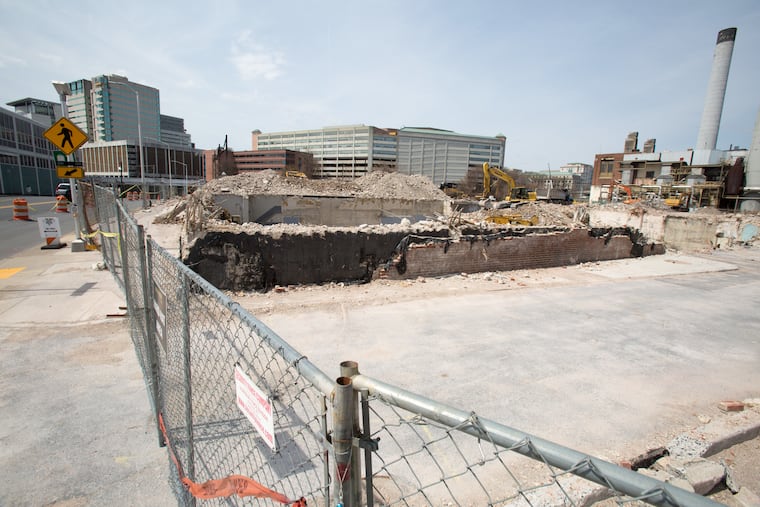Legal and financial costs surpass $1 million in pension fund probe
PSERS has hired three outside law firms and a Seattle company specializing in “emergency” investment advice to respond to an FBI probe.

The cost for Pennsylvania’s largest taxpayer-funded pension plan to cope with a federal criminal probe has topped $1 million and appears likely to keep rising.
The plan, known as PSERS, has hired three outside law firms and a Seattle company specializing in “emergency” investment advice to respond to the investigation by federal prosecutors and the FBI that has been underway since at least late March.
Federal authorities are digging into the admission by the PSERS board that it erred by adopting an inflated official figure for investment performance. They have also sought information about the plan’s authorization of $13.5 million in spending to buy and knock down buildings near its headquarters in the state capital.
In the latest disclosure, a newly released contract shows that the fund, the Public School Employees’ Retirement System, has agreed to pay $810,000 over the next six months to Verus Advisory Inc., a Seattle firm, “on an emergency basis” to help oversee its $64 billion in investments.
Verus will pick up work normally done by PSERS chief investment officer James H. Grossman Jr. and his staff as they respond to the federal investigation.
Grossman remains in his job, which pays him $485,000 a year, more than any other state employee. He leads 50 investment professionals, who are to be paid a total of $9.2 million this year — about a third of the fund’s total payroll. His two deputies are each paid $399,611.
The Seattle firm will also help PSERS’s auditors analyze and recommend any “corrective measures” for PSERS investment practices, including the more than $700 million in annual fees it pays Wall Street investment managers. Critics say the fund has paid far too much to such outside experts, given its often unremarkable investment performance.
The pension plans send more than $6 billion in checks yearly to 265,000 retired public school teachers and other former school employees. Their average yearly pension is $26,000.
To help it cope with the federal investigation and to conduct its own internal inquiry, the fund has also brought in the three law firms — Morgan Lewis, a 2,200-lawyer Philadelphia firm; Womble Bond Dickinson, with nearly 1,000 lawyers in the United States and the United Kingdom; and Pillsbury, a 700-lawyer Washington firm.
Womble is to be paid up to $367,500, with its top lawyers getting as much as $650 an hour, its contract shows. While the full fees to be paid Morgan Lewis and Pillsbury are not yet public, the top assigned attorney from Morgan Lewis was to charge $1,250 an hour for initial work, documents show. For partner Timothy Levin, this was a cut from his standard hourly rate of $1,425, Morgan Lewis told the fund.
Until the federal probe, the fund had been planning to spend far less on outside legal help. It budgeted just $227,000 for this category in the current fiscal year.
In past years, state taxpayers have picked up the bill to pay for lawyers for individual employees who become caught up in official investigations. Such payments end when an employee faces criminal charges. Evelyn Williams, a spokesperson for PSERS, did not respond to an email asking what its policy was.
It’s unknown if the federal investigation’s two subjects — the investment figure and the real estate — are related.
In December, the fund’s board endorsed a figure for investment returns purporting to show performance just good enough to avoid a state-mandated increase in the payments that working school employees make into the pension plan’s treasury.
But after agency leaders acknowledged earlier this year that the report was wrong, the board in April adopted a new, less successful figure. It was low enough to require about 100,000 school workers to pay more into the fund. For complex legal reasons, the new rates only hit staff hired since 2011.
As for the real estate, the fund since 2017 has spent about $3 million, out of a $13.5 million budget allocation, to buy several buildings and parking lots near its headquarters. No plans have been made public to do anything with the purchases.